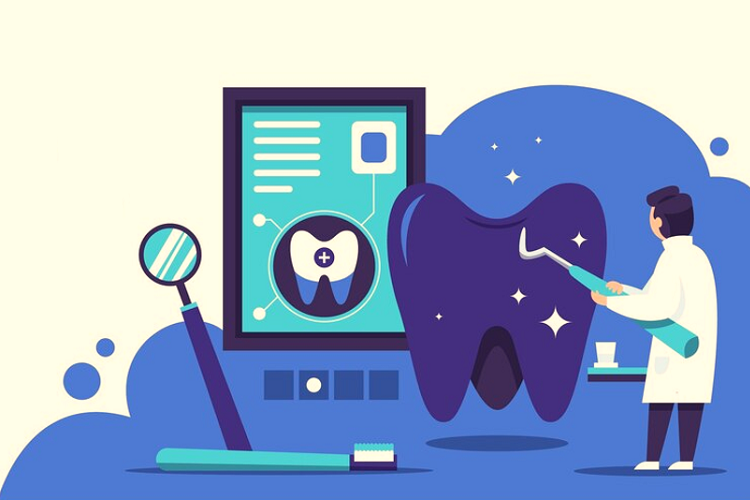In the digital age, efficient management of dental practices relies heavily on technology. One crucial aspect is choosing the right dental billing software. This decision can significantly impact the workflow, financial management, and overall efficiency of your practice. With a plethora of options available, selecting the ideal software requires careful consideration and understanding of your practice’s specific needs.

How to Choose the Right Dental Billing Software
Choosing the right dental billing software can be overwhelming due to the many options. To make the best decision, consider your specific needs. Here are some tips to help you choose.
1. Understanding Your Practice’s Requirements
Before diving into the sea of dental billing software options, it’s vital to assess your practice’s unique requirements. Consider factors such as the size of your practice, the number of practitioners, the volume of patients, and the specific billing needs. For instance, a large multi-practitioner clinic might require comprehensive features like appointment scheduling, insurance claim management, and reporting capabilities. On the other hand, a smaller practice may prioritize simplicity and ease of use.
2. Key Features to Look For
When evaluating dental billing software, focus on essential features that align with your practice’s needs. Look for functionalities such as accurate claim submission, real-time eligibility verification, integrated payment processing, and patient billing management. Additionally, ensure the software is compliant with healthcare regulations, such as HIPAA, to safeguard patient data. User-friendly interfaces and customizable templates can also enhance productivity and ease of use for your staff.
3. Compatibility and Integration
Efficient dental billing software should seamlessly integrate with your existing practice management system and other software applications. Compatibility ensures smooth data exchange between different platforms, reducing errors and saving time on manual data entry. Verify compatibility with your preferred electronic health records (EHR) system, accounting software, and any other tools used in your practice. Integration streamlines administrative tasks and enhances overall efficiency.
4. Ease of Implementation and Support
Opting for dental billing software that offers easy implementation and ongoing support is essential for a smooth transition and continued operation. Look for providers that offer comprehensive training for your staff and readily accessible customer support to address any issues or queries promptly. Additionally, consider the scalability of the software to accommodate future growth and changes in your practice’s needs. Regular software updates and maintenance ensure compliance with evolving industry standards and regulations.
5. Cost Considerations
While cost is a significant factor in any business decision, it’s essential to weigh the value provided by dental billing software against its price. Consider not only the initial investment but also ongoing costs such as subscription fees, support services, and potential upgrades. Look for transparent pricing models and avoid hidden fees or long-term contracts that may hinder flexibility. Ultimately, prioritize value and functionality over upfront cost to ensure the software’s long-term suitability for your practice.
6. User-Friendly Interface and Accessibility
In the fast-paced environment of a dental practice, time is of the essence. Therefore, opting for dental billing software with a user-friendly interface is paramount. A clean, intuitive design reduces the learning curve for your staff, allowing them to navigate the software efficiently and complete tasks with ease. Additionally, consider the accessibility of the software, especially if your practice requires remote access or mobile capabilities. Cloud-based solutions offer the flexibility to access billing data from any location with an internet connection, enhancing convenience and productivity.
7. Security and Data Protection
Protecting patient data is non-negotiable in healthcare. When choosing dental billing software, prioritize security features to safeguard sensitive information against cyber threats and breaches. Ensure the software employs robust encryption protocols, secure data storage practices, and regular security updates to mitigate risks. Compliance with industry standards such as HIPAA ensures adherence to strict privacy regulations and instills confidence in patients regarding the confidentiality of their information. Prioritize software providers with a proven track record in data security and a commitment to compliance.
8. Feedback and Reviews
Before making a final decision, leverage feedback and reviews from other dental professionals using the software. Online forums, social media groups, and professional networks are valuable resources for gathering insights and experiences from peers. Pay attention to user reviews regarding ease of use, customer support, reliability, and overall satisfaction with the software. Additionally, seek recommendations from trusted colleagues or industry associations for reputable software providers. Incorporating real-world experiences and recommendations into your decision-making process can provide valuable insights and help you make a confident choice for your practice.
Final Thoughts
Selecting the right dental billing software is a critical decision that can significantly impact the efficiency and success of your practice. By understanding your practice’s specific requirements, prioritizing essential features, and considering factors such as compatibility, support, and cost, you can make an informed choice. Remember, the ideal software should streamline billing processes, enhance productivity, and ultimately contribute to providing excellent patient care. Take the time to research and evaluate various options to find the perfect fit for your practice’s needs.


